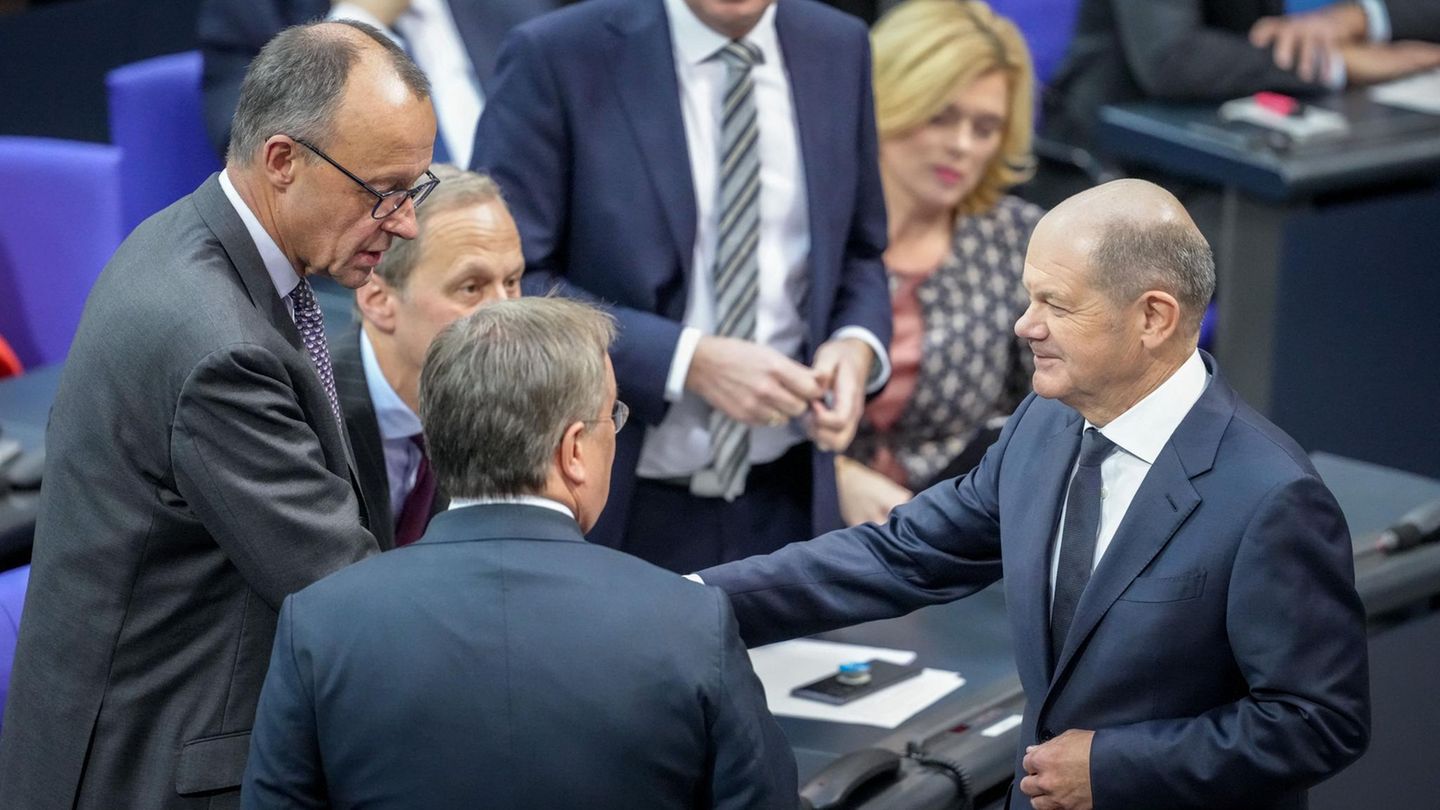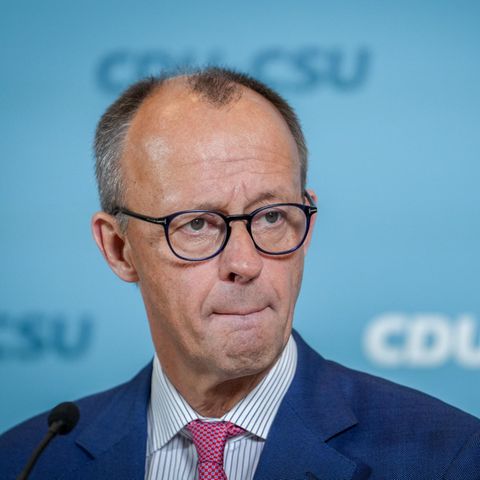Federal election
Taxes, pensions, climate – this is how the parties position themselves
Copy the current link
The first question of trust in almost 20 years is coming up: On Monday, Chancellor Scholz wants to make new elections possible on February 23rd. The parties are preparing at full speed.
Promises of relief and subsidies, more taxes for the rich or a stable pension level: a good two months before the federal election, it is becoming clear which projects the parties want to use to score points in the election campaign. On Monday, Chancellor Olaf Scholz (SPD) asked the Bundestag a vote of confidence (1 p.m.) in order to bring about a new election on February 23rd.
Union relies on migration, debt brake and tax relief
The Union is fighting for votes with a variety of promises, some of which are expensive. A draft of the election program states, among other things, that she wants to reduce electricity taxes and network fees. Networks, storage and all renewables should be expanded.
As relief, taxes should be reduced and the obligation to file tax returns for pensioners should be abolished. At the same time, the Union is sticking to the debt brake. The draft program leaves it open how the plans will be specifically financed. The 79-page paper is available to the German Press Agency and is due to be approved by the boards of the CDU and CSU on Tuesday.
SPD promises tax cuts and huge investment program
The Social Democrats are placing an economic recovery and the affordability of life at the center of their hoped-for race to catch up. According to the draft program, 95 percent of taxpayers should be relieved. Money should come in through a wealth tax for people with assets of more than 100 million euros and a changed taxation of inheritances, financial transactions and real estate profits.
Investments are to be initiated from a debt-financed 100 billion fund. In general, the debt brake should make exceptions for investments in the future.
The SPD is also backing the minimum wage: from 2026 it should be 15 euros. The pension should be stabilized and the rent cap should be extended. The SPD advocates “quick and consistent deportations,” especially of criminals, but prefers the voluntary return of migrants without the right to remain.
In Potsdam, Chancellor Scholz reiterated his position on arms deliveries to Ukraine. “It would be wrong to say: We want the war to be waged in such a way that the weapons we supply go deep into the hinterland,” said Scholz. “That’s why I’m saying here clearly: I won’t do that.”
The SPD state representative assembly elected the Chancellor to number one on the Brandenburg state list on Saturday. The Union’s top candidate, CDU leader Friedrich Merz, was also elected to number one on the list by his state association in North Rhine-Westphalia. On Sunday, the delegates to the state election meeting of the NRW-FDP elected party leader Christian Lindner to first place on the state list.
Greens want to introduce climate money
In the election campaign, the Greens are focusing on socially acceptable climate protection by introducing climate money. “All people with low and middle incomes will receive a large part of the income from the CO2 pricing of building heat and transport back as climate money to compensate,” says the draft election program, excerpts of which are available to the German Press Agency. The climate money should come “as quickly as possible” in the next legislative period. The “Spiegel” had previously reported.
The broken traffic light coalition made up of the SPD, Greens and FDP had already agreed on climate money in the 2021 coalition agreement to relieve consumers. At that time, however, there was no technical possibility of paying out to every individual citizen. Therefore, it was not implemented. According to earlier statements by former Federal Finance Minister Christian Lindner (FDP), whose ministry at the time was supposed to find a solution for this, a per capita payment should be possible from 2025.
Scholz asks the Bundestag for a vote of confidence
On Monday, Scholz will call on MPs to express their confidence in him, citing Article 68 of the Basic Law – in order to achieve the opposite. If he does not get a majority in the Bundestag as intended, he will suggest to Federal President Frank-Walter Steinmeier that the Bundestag be dissolved. He then has 21 days to decide whether he agrees and calls a new election within 60 days. Steinmeier’s approval is considered certain. He has already signaled that he agrees with the target date of February 23rd.
DPA
tis
Source: Stern
I have been working in the news industry for over 6 years, first as a reporter and now as an editor. I have covered politics extensively, and my work has appeared in major newspapers and online news outlets around the world. In addition to my writing, I also contribute regularly to 24 Hours World.





